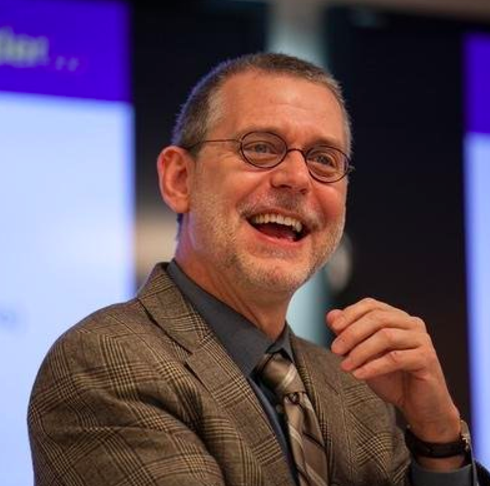James Bailey is professor of Leadership Development at the George Washington University School of Business. He was named one of the world’s top ten executive educators by the International Council for Executive Leadership Development. There are 3 million CEOs on Linkedin. The question is, why aren’t all of them famous?
James: Hi, thanks for taking the time to talk.
Jeffery: So we’re going to talk today about what distinguishes some leaders in business from others. One interesting factoid that I noticed the other day is if you searched for the term CEO on LinkedIn, you get 3 Million results. Most people don’t even know the names of the handful of CEOs. What do you thing to distinguish those that become known from all the others that are out there?
James: Well, I mean, first thing, a lot of those CEOs that you’re seeing of those three million impressive number to be sure are probably CEOs of very, very small sole proprietorship organizations. So a lot of them are just the them, right, it’s one person. And so you’re seeing an enormous amount of people with that title and that’s not necessarily the CEO’s that you and I tend to think about, which are those big names CEOs and that goes directly to your question, is the ones we see are the ones that are in the news and those tend to be Fortune 500 companies.
And most fortune 500 you and I wouldn’t know their names; very educated people within the business world who wouldn’t even know their name. Generally, we tend to know the ones that are in charge of public companies with a clear consumer product; that’s why we know Apple, that’s why we know General Electric or IBM or Disney because they have this thing, this product or maybe it’s a service that you and I use on a daily basis and the press knows we’re interested in them.
If some CEOs and his/her firm make a particular integrated circuit that’s used to monitor the electrical systems of automobiles we never hear about that person because that particular thing we don’t live with, we don’t stay in touch every day. Yet there are folks who create that business, that service, that product from nothing; there is the Richard Branson, the Elon Musk and the Jeff Bezos who started companies and became household names to some extent. What distinguishes these kind of guys and these kind of women from people who start businesses and don’t become, you know, don’t start space companies as it were, each of these guys try to land on Mars.
Well, I mean, we’ve got to include here the element of luck, that they were in the right time at the right place and maybe they also hired a few critical people who saw an extraordinarily critical element to the firm and its future and its development that that person wouldn’t have seen. And Branson is an interesting example of this because Branson is functionally a dyslexic, and so he takes a look at the spreadsheet, basic balance sheet and its all props and whistles to him and so he needed to surround himself with some extraordinary people that could take care of that part of the business.
The other thing is that many of these other firms where we don’t know the CEO that he or she is not in the public spotlight; there was a founder at one point, maybe a hundred years ago maybe even longer than that. There was the charismatic founder of this firm and that firm has grown beyond the need for charisma. If the firm gets bigger that founder becomes less and less important. You need to take that charisma and that energy and you need to codify it. And by that I mean formalize it and bring it back into the organization. It’s too big to be a corporate personality. And so you’re talking about Elon Musk and the Jeff Bezos of the world and the Richard Branson’s, they were the founders of their company and they are still there, they are still growing, they are still pushing; but they were the ones smart enough to realize that they had to professionalize the firm and they went from being operations to ideas and that’s why they’re still relevant.
Jeffery: Right. And so there’s this idea of they hired A-list talents and those A-list hires then hired more A-list people because of their charisma they were able to attract this talent and then thereby grow this A-list company.
James: That’s exactly true. So it’s kind of a pass through or trickled down where they made the right decision close to them in terms of people, which allows them to focus more on the market, on the products and then allow those other folks – they are still sweet executives, but they’re handling the day in and day out of the organization, including the negotiations with Wall Street, including making asset managers and shareholders happy.
Jeffery: You mentioned charisma, how do we define this in the business literature, like, what is charisma? What kind of person…? And can you develop it if you don’t have it, I wonder? I mean, this is probably pretty deep question for a Monday, but what do you think?
James: Well, let’s say it is a big question. Charisma is one of those things that we know it when we see it but it’s hard to define.




